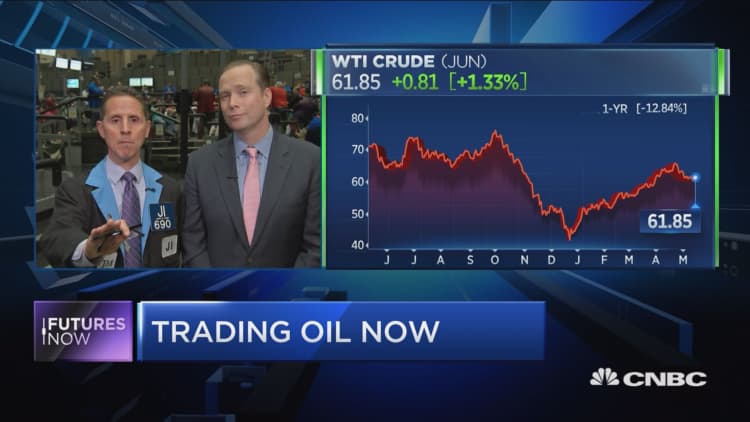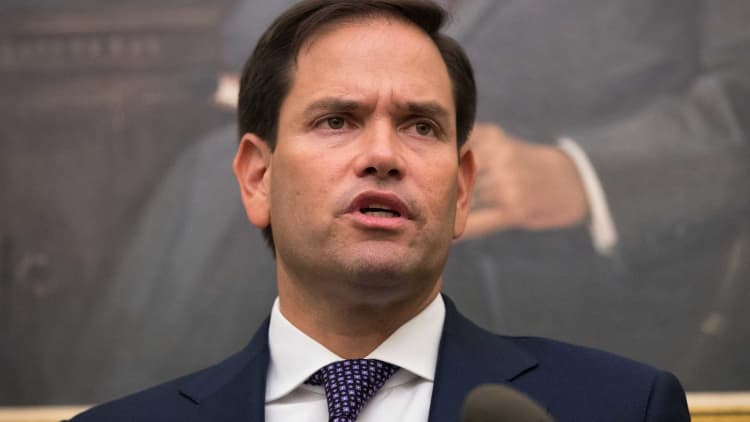Oil prices jumped as much as 2% on Thursday as tensions in the Middle East grew, with a Saudi-led coalition launching air strikes in retaliation for recent attacks on its oil infrastructure.
U.S. West Texas Intermediate crude futures settled 85 cents higher at $62.87 per barrel, gaining 1.4% and closing at the highest level in two weeks.
Brent crude futures rose 85 cents, or 1.2%, to $72.62. Brent, the international benchmark for oil prices, touched its highest level in three weeks earlier in the session.
The Saudi-led military coalition in Yemen carried out several air strikes on the Houthi-held capital Sanaa on Thursday after the Iranian-aligned movement claimed responsibility for drone attacks on two Saudi oil pumping stations earlier in the week.

"You have a sizable strike on Iran-aligned Houthi forces in Yemen today, so until there's some kind of stepback from that situation, this market is going to have a tough time trading lower," said Mizuho director of futures Bob Yawger. "There's just a lot of political risk in this market."
Saudi Arabia's deputy defense minister accused Iran of ordering the drone attack on the pumping stations. It comes after attacks on four oil tankers off the coast of United Arab Emirates on Sunday.
Taken together, the escalation of tensions has compounded fears of supply disruption in the Middle East. U.S. staff was ordered to leave the American embassy in Baghdad on Wednesday out of concern about perceived threats from Iran.
Iraq's oil minister Thamer Ghadhban said Thursday that international oil companies have said they are operating as normal in the country, Iran's direct neighbor.
Asian shippers and refiners have put ships heading to the Middle East on alert and are expecting a possible rise in marine insurance premiums after the attacks.
Japanese Prime Minister Shinzo Abe told Iran's Foreign Minister Mohammad Javid Zarif he was concerned the situation in the Middle East "is becoming very tense."

The market still faces uncertainty over whether OPEC and other producers will continue with supply cuts that have boosted prices more than 30% so far this year.
Ghadhan said the next meeting of OPEC's joint monitoring committee will assess the commitment of member and non-member countries to the production cuts. The so-called OPEC+ group of producers, which includes Russia, meets next month to review whether to maintain the pact beyond June.
OPEC said on Tuesday that world demand for its oil would be higher than expected this year.
A rise in U.S. crude oil inventories to their highest since 2017 helped to cap prices, though government data pointed to a smaller increase than previous industry data. Falling gasoline stocks also provided some price support.
— CNBC's Tom DiChristopher contributed to this report.

